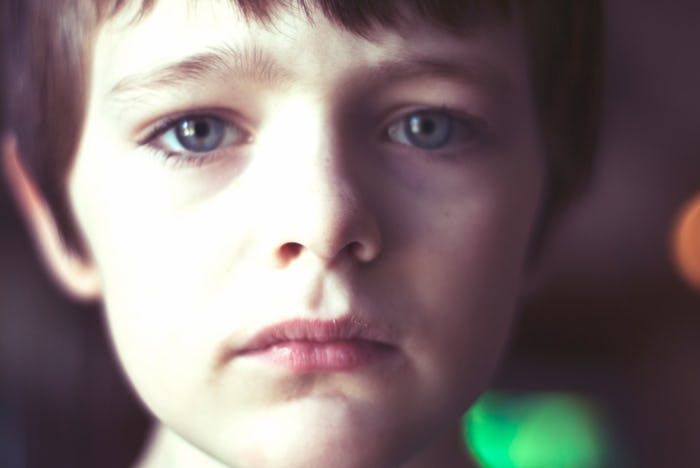Life

7 Ways To Help Your Child Deal With Death & Make It Through The Difficult Time
When death occurs for the first time in your child’s life, you might be grieving in addition to worrying about finding ways to help your child deal with death. As Scholastic reports, children start to understand death between the ages of 5 and 7 years old: that all physical life of the person has permanently and irreversibly ended. At these ages and above, there are many ways the adults around a child can handle explaining death, but the most important part is that the adults carefully listen to the child’s concerns and emotions, validate them, and respond. It’s good that an adult watch for signs of intense grieving that may interfere with a child’s life ( school, friendships, play ) so you can get extra help for the child, in the form of a school counselor, child psychologist or grief counselor.
What you say about death to our child will depend on their ages and experiences. It will also depend on our own experiences, beliefs, feelings, and possibly the circumstance of the death. Some discussions about death may be stimulated by a person your child didn’t know well, while others may be painfully close. Either way, as a parent or caregiver, you just want to comfort your child. So what do you say? What do you do? Here are some ways to help your child deal with death and get them through what may be one of the most difficult times of their life.
1Understand Where Your Child Is Developmentally
When our 13-year-old golden retriever died, my then 4-year-old daughter cried all night. But the next day she asked how long he would be dead for, and when he was coming back. This is not an uncommon question from a younger child. When discussing very young children and death to the Child Mind Institute, psychiatrist Gail Saltz said "children understand that death is bad, and they don't like separation, but the concept of 'forever' is just not present." The Child Mind Institute notes that older children may understand death, but that it’s best to let them lead with questions that you can answer, instead of trying to provide an overall explanation.
2Don’t Use Metaphors Or Alternate Explanations
Good meaning adults can create a child who is afraid of going to sleep by telling them that “Grandpa went to sleep and never woke up.” It’s important to explain to a child that death is what happens when people get very old and their bodies don’t work well, and then they are ready to die. If they death revolved around a young person, emphasize that this it is rare for young people to die, and if it is a tragic accident, focus on the ways that your family stays safe, and again repeat that it is rare for a child to die.
3 3. Help Them Understand How They Will Be Affected
A child encountering death may become afraid they themselves, or someone they love, are going to die. “Honesty and openness provide a child with the opportunity to process their fears,” grief counselor Joseph Primo said In interview with the podcast, The Longest Shortest Time. “When children are given the space to talk about their fears, parents are often surprised to hear that the child is worried about their needs getting met, keeping their routines, and having access to the things they enjoy.”
4Reassure Them That No One Can Make Anyone Die By "Being Bad"
Children are prone to blame themselves for events they cannot understand, which is why it’s important to address what may be an unspoken fear of theirs: that they caused the death. When a grouchy, grumpy Grandpa they did not enjoy being with dies, they may wonder if their negative thoughts about Grandpa "made him die." According to the ebook Helping Children Live With Death and Loss, it is essential to assure the child that a person’s thoughts, feelings or wishes cannot make another person die.
5Allow The Child To Discuss The Death As Often As They Need To
Having an open, available and emotionally supportive adult to talk to about the death is crucial for a child to work through a loss. This can be hard because you don’t have all the answers- but you don’t have to. What’s most important is that an honest, supportive adult works alongside the child to process the experience and emotions.
6Use Creative Forms of Expression to Help Them Process Their Feelings
Long understood to be a way to process pain, any form of creativity can help them work through their grief. Whether it’s scribbling on paper or dancing through the house, let your child express their emotions.
7Discuss Your Beliefs or Alternate Belief Systems
If you are religious and have deeply held beliefs, share those beliefs with your child. This can be greatly comforting for them. Your religion’s history of traditions around grieving can give your child a sense of grounding and comfort. You could also share with your child that there are many belief systems, and explore what those are. Buddhism and Native American traditional teachings on death can be very comforting to explore as well, focusing on the unity of all life.
Images: Lance Neilson/Flickr; Giphy (7)